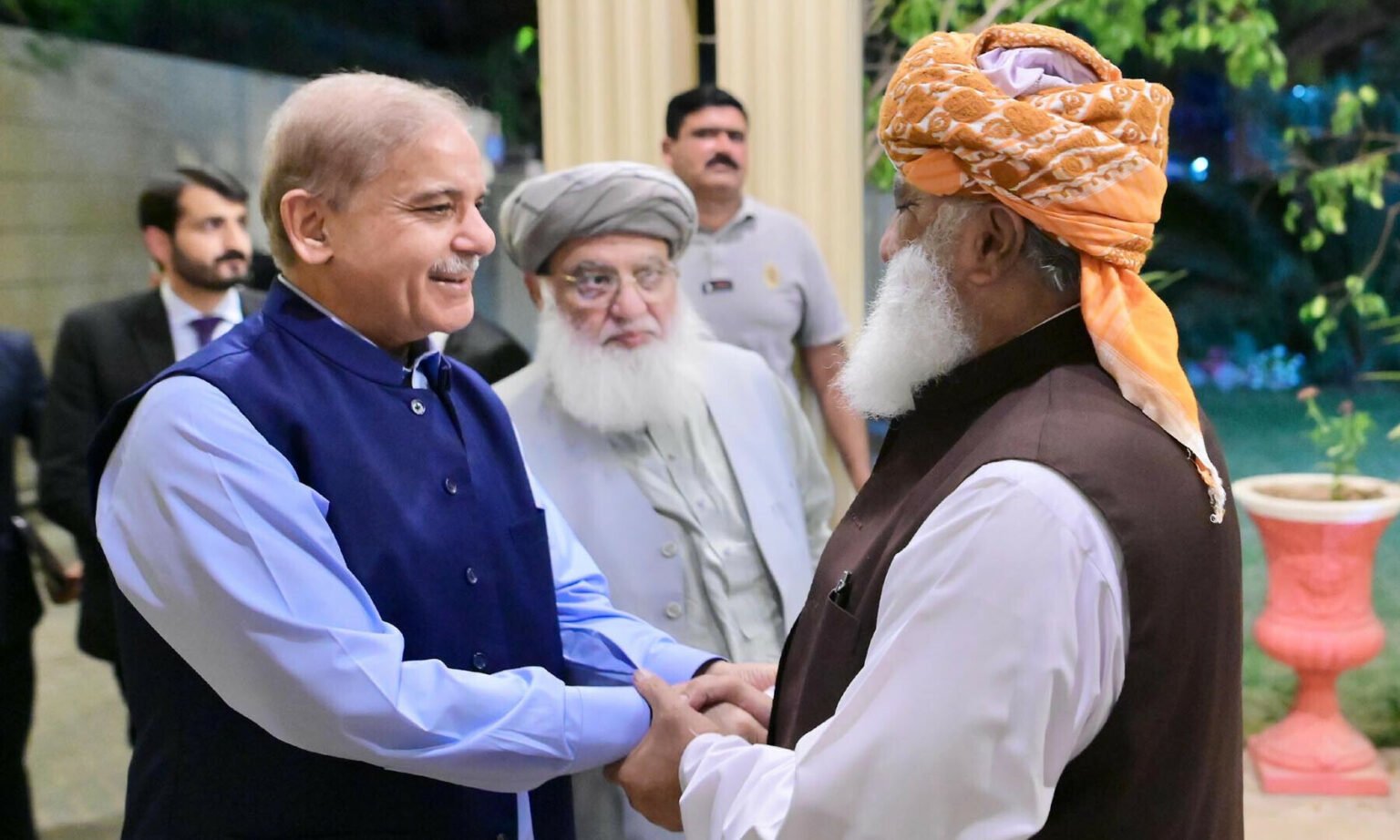Parliamentary Alliance
Following the recent parliamentary collaboration between the Jamiat Ulema-e-Islam-Fazl (JUI-F) and the major opposition party, Pakistan Tehreek-e-Insaf (PTI), Prime Minister Shehbaz Sharif met with JUI-F chief Maulana Fazlur Rehman on Friday to address his concerns.
According to sources, PM Shehbaz assured Fazl that his reservations would be taken into consideration and resolved.
The federal government, led by the Pakistan Muslim League-Nawaz (PML-N) in coalition, sought to engage with Maulana Fazl after he openly expressed dissatisfaction with several issues under the current administration.
In this crucial meeting, the government aimed to gain the JUI-F leader’s support in navigating the country’s ongoing challenges.
The meeting also aimed to appease Fazl, who had recently criticized the coalition government and accused it of manipulating the results of the February 8 nationwide polls.
Before the 2024 general elections, Maulana Fazlur Rehman was a close ally of the PML-N and the Pakistan Peoples Party (PPP). He headed the Pakistan Democratic Movement (PDM), a multi-party opposition alliance that successfully ousted former Prime Minister Imran Khan from office through a no-confidence motion in 2022.
However, in light of the recent JUI-F and PTI cooperation in parliament, PM Shehbaz appealed to Fazl, urging him to reject the “politics of the anarchist group.”
The government’s recent efforts to win back the JUI-F’s favor come after the party reached an agreement with PTI for cooperation in both the National Assembly and the Senate.
This development has occurred amidst speculations that the government is planning to introduce key legislation in parliament. The meeting with Fazl was the second significant engagement by coalition leaders following his interaction with PPP President Asif Ali Zardari, where potential legislation to be tabled in parliament was discussed.
Amid these political maneuvers, PM Shehbaz’s government is actively engaging its allies, especially amid rumors of judiciary-related legislation being introduced.
This includes possible changes to the laws governing appointments of top judges based on seniority. PTI’s leadership, led by Barrister Gohar Ali Khan, has accused the government of “secretly working on legislation” without adequate discussion in parliamentary sessions.
Gohar Khan also emphasized his party’s opposition to any potential extension for the current top judge set to retire in October.
Meanwhile, Federal Minister for Law and Justice Azam Nazeer Tarar countered the opposition’s claims, stating that the only criterion for appointing a new Chief Justice of Pakistan (CJP) would be “seniority.”
He advised against politicizing judicial appointments and discouraged unnecessary debates on the matter.
Information and Broadcasting Minister Attaullah Tarar also dismissed rumors of a constitutional amendment to extend the chief justice’s tenure, reiterating that while the topic was debated months ago, it is not currently on the government’s agenda.
These developments highlight the complexities of Pakistan’s political landscape, where alliances shift, and negotiations are ongoing, especially in the lead-up to critical legislative decisions and the 2024 general elections.


